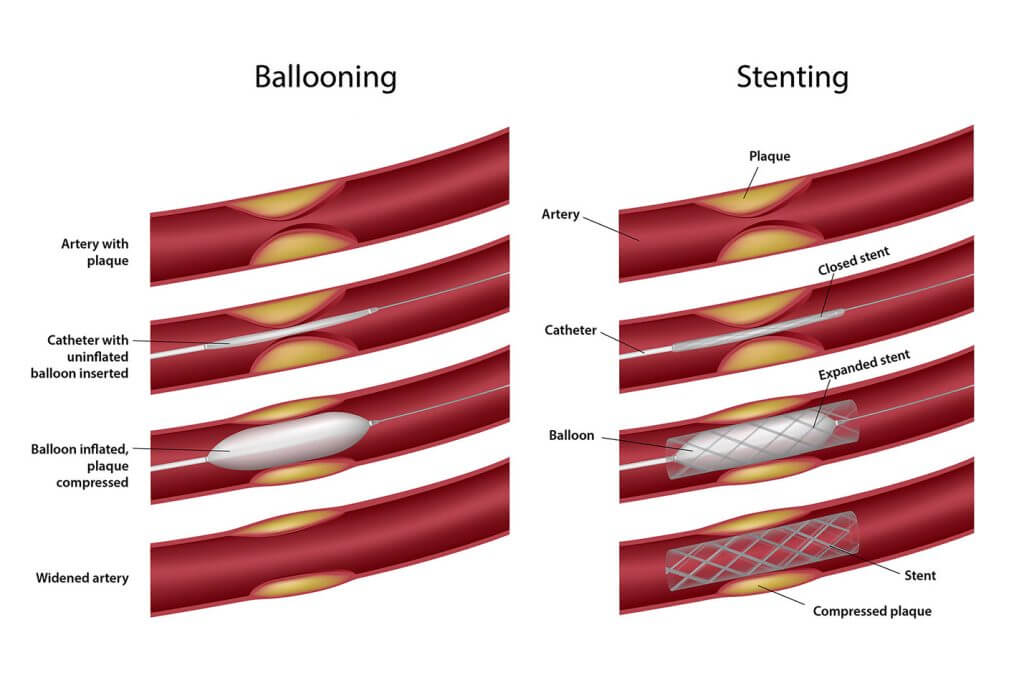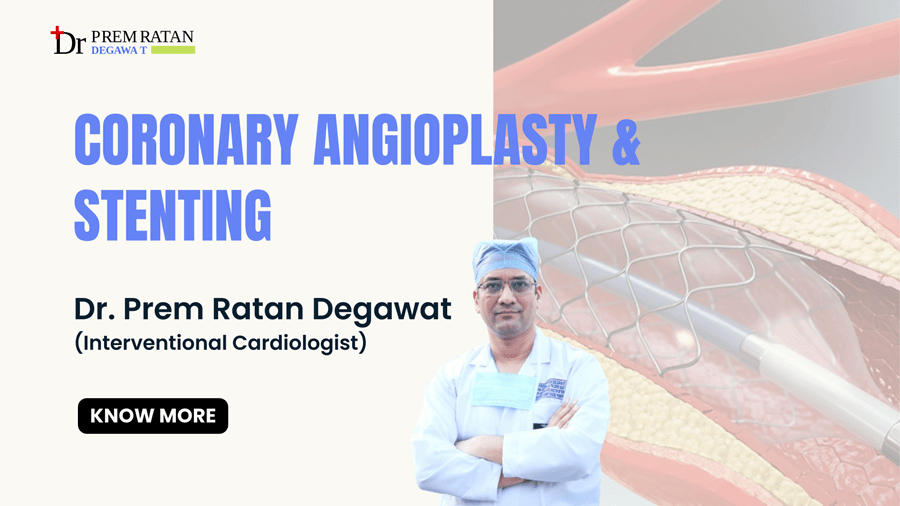What is Coronary Angioplasty?
Coronary angioplasty is a minimally invasive procedure used to reopen narrowed or blocked coronary arteries, the vessels responsible for delivering oxygen-rich blood to your heart. During this procedure, a tiny balloon is inflated within the narrowed artery to widen it and improve blood flow.

When is Coronary Angioplasty Needed?
Coronary arteries deliver blood to your heart. Plaque buildup can narrow these arteries, reducing blood flow and causing chest pain (angina) during exertion. Medication may help, but angioplasty might be needed to open the arteries and improve blood flow if medication fails or you’ve had a heart attack.
Benefits of Coronary Angioplasty
- Improved blood flow to the heart, alleviating angina symptoms and allowing for better physical activity.
- Increased chances of survival following a heart attack compared to clot-busting medication.
- Reduced risk of future heart attacks.
How is Coronary Angioplasty Performed?
Dr. Prem Ratan Degawat, a leading interventional cardiologist, performs coronary angioplasty with expertise and precision. Here’s a general overview of the procedure:
- Preparation: The insertion site, usually in the groin or wrist, is sterilized and numbed.
- Catheter Insertion: A thin catheter is inserted into the artery and guided towards the blockage using real-time X-ray imaging.
- Angioplasty: Contrast dye is introduced to identify blockages. A second catheter with a balloon tip is then positioned, and the balloon is inflated to widen the narrowed artery.
- Stent Placement (Optional): In some cases, a stent, a tiny mesh tube, is placed to support the artery and prevent re-narrowing.
- Recovery: The catheters are removed, and you’ll be monitored for a few hours or overnight in the hospital.

Recovery After Angioplasty
- You may experience some soreness, bruising, or mild bleeding at the insertion site.
- Driving is restricted due to potential sedation effects.
- Lifting restrictions may be in place for about a week.
- Most patients return to work within a week, with specific instructions from Dr. Degawat regarding activity levels.
- A follow-up appointment is crucial to assess recovery, adjust medications, and develop a long-term heart health management plan.
Why Choose Dr. Degawat for Coronary Angioplasty in Jaipur, Rajasthan?
- Extensive Experience: Dr. Prem Ratan Degawat is the best cardiologist in Jaipur with a proven track record in performing coronary angioplasty procedures. As a TAVR Expert in Rajasthan, his expertise extends to advanced procedures like TAVR, ensuring comprehensive cardiac care for his patients.
- Advanced Training: His expertise ensures he stays current with the latest techniques and technologies in this field.
- Patient-Centered Care: Dr. Degawat prioritizes clear communication and compassionate care, ensuring you feel informed and comfortable throughout your treatment journey in Jaipur.
Coronary angioplasty can significantly improve your quality of life.


